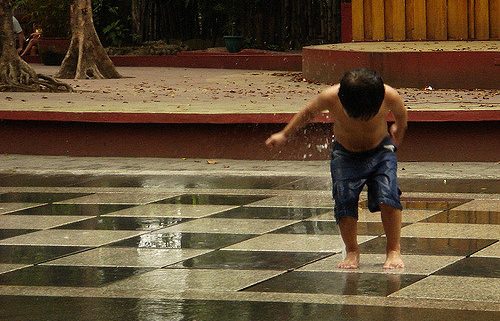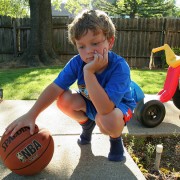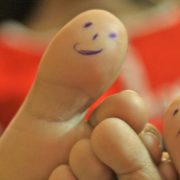You can Encourage Problem Solving Skills in Your Children!
Recently I spoke about some strategies adults can utilise when they have a problem or an issue to deal with, in an attempt to move through the issue.
Today, let’s look at how we can help children to start to learn problem solving skills in their own life.
The first way to help is by YOU not helping! Let me explain…..
When I take an activity to a home visit I start by letting the child play with the items in their own way – I don’t explain what they are ‘supposed to do with it’ at this stage. Let’s say the activity is putting a small block through a cardboard tube (like a poster tube). A toddler around the age of one will usually pick the items up and they may look in the cylinder, they might bang it on the floor, or blow into it etc.
When they’ve had plenty of time to play, then I show them how I insert the block in the top of the cylinder. They then usually attempt to do it for the first time, and often can’t yet do it the same way – not unusual for a first timer! What’s interesting is that many parents step in at this point and correct how the child’s doing it, or fix the problem. The parent might pick up the block and tell the child what to do, or they might correct the child if they aren’t holding the cylinder at the right angle. The parents’ aim is usually to ‘help’ the child, and their intention is pure. However…..
We learn ‘how to solve problems’ by working out how it DOESN’T work ie is by getting it ‘wrong’ a few times we then start to have a go another way, and if that doesn’t work we might try a third way. Each time that we re-adjust, we are actually starting to develop a new neural pathway in our brains, ie ‘a connection’. Within our brain we have lots of neural pathways, and it is only when we repeat a task over and over, that we have a ‘strong/ secure’ pathway. It’s a bit like a muscle – the more we exercise that muscle the stronger it becomes. For example, the more we practice the skill of solving a problem – like how to get a block into the cylinder- the easier it becomes. So when parents step in to help very early in the piece, they actually prevent the child from beginning to build the ‘muscle’ of problem solving, because the child doesn’t have to think – Mum or Dad just did it for them! No thinking involved for the child at all!
Other ways to help your children:
Encourage them to ‘give it a go’ – use words like: ‘You’ve almost done it, just a bit more’ or ‘I know you CAN do it!’ Or ‘Remember what you did last time this happened, do that again because it worked.’
When something goes wrong – eg their block tower collapses – say “Oh no, what will you do?’ or ‘What could you do to fix it.?’ Hold back from giving them your solution…. Because when you hold back, then they have to start thinking of their possible solutions.
Break a problem down into little steps for example when they are starting to learn to put socks on, get the sock ‘ready’, by rolling down the top part to make it easier to insert their foot in to.
Obviously if your child starts to become distressed after a few attempts, then say: ‘Would you like me to help?’ This lets them know that you can do it, after they’ve had a go themselves…. We are not looking to have stressed children, but want to …
allow them to have the opportunity of starting to problem solve for themselves.
With older children… when they come home from school with a problem with another child… rather than either jumping to your child’s defense (and saying ‘I’m going to ring the school tomorrow and complain’) or going the other way and assuming it was your child in the wrong (“What did you do?’) – instead ask them what happened first, and then next? At the end of the story ask them: ‘If this happens again, what could you maybe do differently so the ending is different?’ For most ‘minor’ issues at school this is a good way to start giving them the message that they have the power to actually solve some things and make things better – a very important message to give our children about personal responsibility!
Have a happy Problem Solving week!







